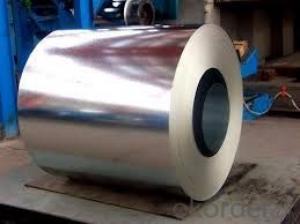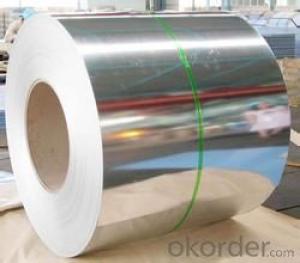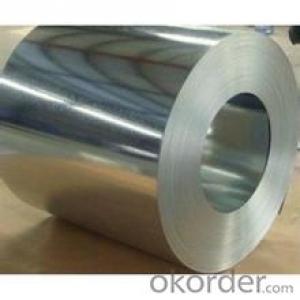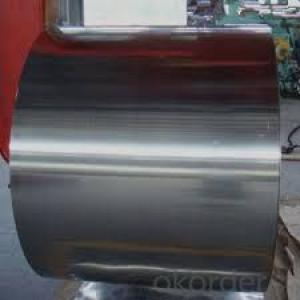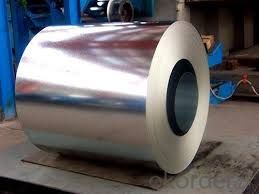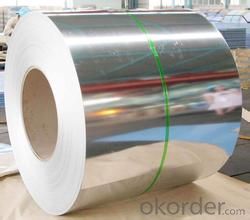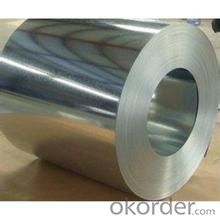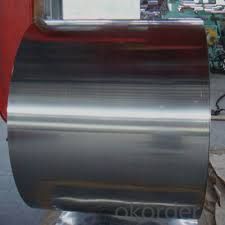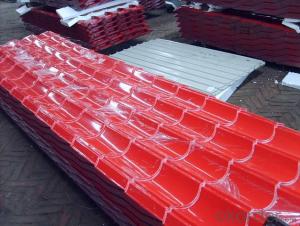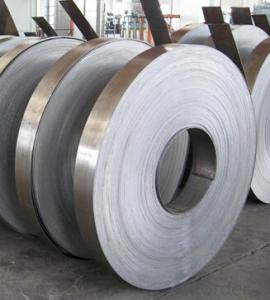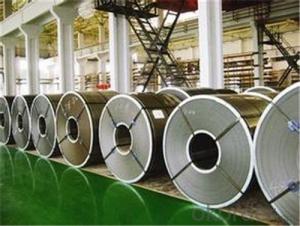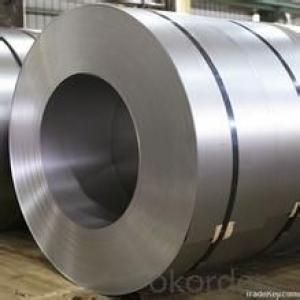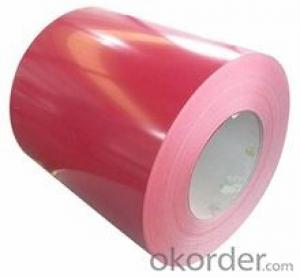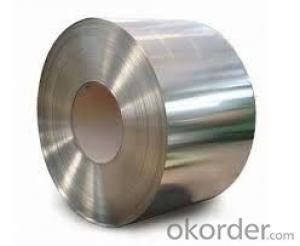EXCELLENT hOT-dip ALUZINC STEEL in China In CNBM
- Loading Port:
- Tianjin
- Payment Terms:
- TT OR LC
- Min Order Qty:
- 100 m.t.
- Supply Capability:
- 5000000 m.t./month
OKorder Service Pledge
OKorder Financial Service
You Might Also Like
Specification of hot-dip aluzinc steel:
THICKNESS:0.18mm-1.5mm
WIDTH:900mm-1250mm
COATING MASS:AZ30-AZ150
SPANGLE:Minimized Spangle,Zero Spangle
SURFACE TREATMENT:N0on or Chromated,Non or Oiled,Non or Anti Finger Print
COIL INNER DIAMETER:508mm/610mm
COIL WEIGHT:3mt-7m
Applications of hot-dip aluzinc steel:
1. roofing
2. gutters
3. unexposed automotive parts
4. appliances
5. furniture
6. outdoor cabinetry
Images of hot-dip aluzinc steel
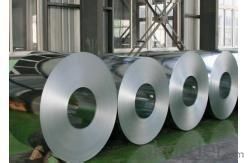
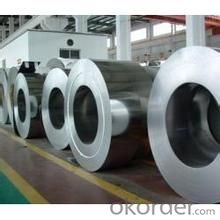
Hot-dip galvanized steel coils are available with a pure zinc coating through the hot-dip galvanizing process. It offers the economy, strength and formability of steel combined with the corrosion resistance of zinc. The hot-dip process is the process by which steel gets coated in layers of zinc to protect against rust. It is especially useful for countless outdoor and industrial applications.
We can ensure that stable quality standards are maintained, strictly meeting both market requirements and customers’ expectations. Our products enjoy an excellent reputation and have been exported to Europe, South-America, the Middle-East, Southeast-Asia, Africa and Russia etc.. We sincerely hope to establish good and long-term business relationship with your esteemed company.
- Q: Can you use regular welding rods when welding stainless steel?Thank you.
- You would use stainless steel rod. I have used stainless safety wire that you can buy at the hardware store or Harbor Freight. (Assuming you are TIG welding). I have found that for small jobs it works quite well.
- Q: Is condensation on steel caused from water being pulled out or is the condensation formed from the air around the steel object?
- Condensation forms when temperatures vary 'quickly'. The air itself is what provides the moisture. There you go.
- Q: rust is not a issue. i was looking a D2 steel but heard story's of it chipping and breaking
- Ok, lets define what is Damascus steel. The modern Damascus is basically any steel that shows a pattern. Patterns are accomplished by 1. manipulating the crystal structure or 2. by combining 2 or more different alloys together. The blade you are looking at is referred to as a pattern welded blade. Damascus is only as strong as it's base components + heat treat and design. The strongest will be obtained by combining high carbon and low carbon steels. I do this by using steel cable. The patterns aren't real bold but are interesting none the less. To break it you must brake the hard steel and tear through the soft iron. The laminated stuff works the same way. For greater edge holding I use all high carbon, varying alloy content from simple carbon to chromium/nickle alloys. These are what you normally find in pattern welded blades. A fine pattern that has many lamination's crossing the edge will offer the best edge holding. Properly done one can get the DCE or damascus cutting effect where the soft layers wear away faster than the hard layers almost making the blade self sharpening. Is that blade good? Buy it if you like it, it won't compare to a well made hand forged blade but is much cheaper. sorry for the overload.
- Q: What are the different types of steel coil packaging materials for export?
- Some of the different types of steel coil packaging materials for export include wooden crates, steel crates, steel frames, steel racks, plastic wrapping, and cardboard boxes. These packaging materials are chosen based on the weight and dimensions of the steel coils, as well as the specific requirements of the export destination.
- Q: How are steel coils used in the production of electrical relays?
- Steel coils are used in the production of electrical relays as the electromagnetic core. When an electric current passes through the coil, it generates a magnetic field that attracts or repels the relay's contacts, allowing the relay to switch on or off and control the flow of electricity in various applications.
- Q: What are the dimensions of steel coils used in the electrical equipment industry?
- The dimensions of steel coils used in the electrical equipment industry can vary depending on the specific application and requirements of the equipment being manufactured. However, there are some common dimensions that are frequently used in this industry. Typically, the width of steel coils used in electrical equipment manufacturing ranges from 0.5 inches to 72 inches (1.27 cm to 182.88 cm). The thickness of these coils can vary from as thin as 0.005 inches (0.0127 cm) to as thick as 0.25 inches (0.635 cm). The length of steel coils used in the electrical equipment industry can also vary, but it is often determined by the manufacturing process and the specific equipment being produced. Coils can range from a few feet to several hundred feet in length. Furthermore, the weight of steel coils can vary depending on their dimensions and the type of steel being used. For instance, a common weight range for steel coils used in the electrical equipment industry is between 5,000 pounds (2,268 kg) and 50,000 pounds (22,680 kg). It is important to note that these dimensions are not fixed and can vary based on the specific needs of the electrical equipment industry. Manufacturers may have their own unique specifications and requirements for the steel coils they use in their products.
- Q: How are steel coils inspected for surface defects?
- Steel coils are inspected for surface defects using various methods such as visual inspection, magnetic particle inspection, eddy current testing, and ultrasonic testing. These techniques allow for a thorough examination of the coil's surface, identifying any cracks, scratches, dents, or other imperfections that may affect the quality of the steel.
- Q: How are steel coils used in the manufacturing of industrial mixers?
- Steel coils are used in the manufacturing of industrial mixers as they provide a strong and durable structure for the mixer body. The coils are shaped and welded to create the necessary components, such as the mixing chamber and blade supports. This ensures that the mixer can withstand the high forces and vibrations involved in mixing large quantities of materials in industrial applications.
- Q: How are steel coils used in the manufacturing of automotive exhaust systems?
- Steel coils are used in the manufacturing of automotive exhaust systems as they are formed into specific shapes and sizes to create the necessary components, such as pipes, mufflers, and catalytic converters. The coils are precision-cut, welded, and bent to fit the design requirements and ensure efficient exhaust flow, durability, and resistance to high temperatures and corrosion.
- Q: What are the common methods of welding steel coils?
- The common methods of welding steel coils include arc welding, resistance welding, and laser welding.
Send your message to us
EXCELLENT hOT-dip ALUZINC STEEL in China In CNBM
- Loading Port:
- Tianjin
- Payment Terms:
- TT OR LC
- Min Order Qty:
- 100 m.t.
- Supply Capability:
- 5000000 m.t./month
OKorder Service Pledge
OKorder Financial Service
Similar products
Hot products
Hot Searches
Related keywords
